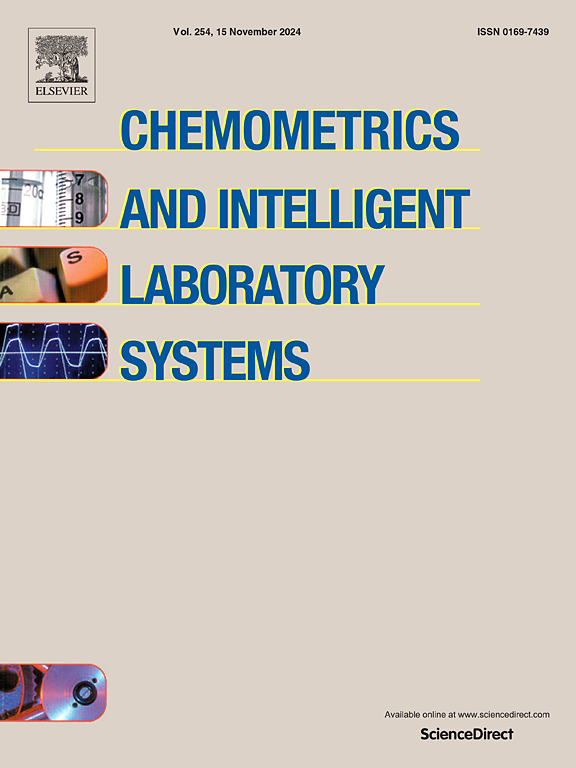局部-全局联合学习预测急性冠脉综合征
IF 3.8
2区 化学
Q2 AUTOMATION & CONTROL SYSTEMS
Chemometrics and Intelligent Laboratory Systems
Pub Date : 2025-09-18
DOI:10.1016/j.chemolab.2025.105515
引用次数: 0
摘要
急性冠脉综合征(ACS)是一种发病率高、死亡率高的常见心血管疾病。许多研究都集中在利用人工智能和机器学习算法来评估和预测患者ACS的风险。然而,由于医疗数据的敏感性和隐私性,在汇聚了来自各个机构的ACS数据的集中式服务器上训练机器学习模型存在一定的风险。本研究首次验证了利用联邦学习协同分析医学数据以预测ACS的有效性。提出了一种基于联邦学习的ACS预测模型,即FedLG,该模型结合了局部-全局协作进行相互校正。在客户端,将正则化项添加到损失函数中,以减少异构数据引起的偏差,帮助全局模型保持准确性和代表性。在服务器端,应用梯度归一化来平衡来自不同更新频率的客户机的贡献,从而产生更稳定和可靠的全局模型。在中国一家三级医院的ACS数据集上进行的综合实验表明,在IID和非IID设置下的七个评估指标中,fedex始终优于针对个人客户训练的模型,以及其他三个联邦基线。时间保持验证进一步表明,FedLG比其他基线具有更好的泛化性。此外,对特征重要性的分析表明,FedLG识别出与脂质相关的生物标志物,这与临床知识一致,增强了结果的可解释性。FedLG的源代码可以在https://github.com/bioinformatics-xu/FedLG上免费获得。本文章由计算机程序翻译,如有差异,请以英文原文为准。
Federated learning with local–global collaboration for predicting acute coronary syndrome
Acute Coronary Syndrome (ACS) is a prevalent cardiovascular disease characterized by high incidence and mortality rates. Numerous studies have focused on utilizing artificial intelligence and machine learning algorithms to assess and predict the risk of ACS in patients. However, due to the sensitivity and privacy of medical data, training machine learning models on a centralized server that aggregates ACS data from various institutions poses certain risks. For the first time, this study validates the effectiveness of utilizing federated learning to collaboratively analyze medical data for predicting ACS. A federated learning-based ACS prediction model, i.e., FedLG, which incorporates local–global collaboration for mutual correction, is presented accordingly. On the client side, a regularization term is added to the loss function to reduce deviations caused by heterogeneous data, helping the global model remain accurate and representative. On the server side, gradient normalization is applied to balance contributions from clients with different update frequencies, resulting in a more stable and reliable global model. Comprehensive experiments on the ACS dataset from a tertiary hospital in China show that FedLG consistently outperforms models trained on individual clients, as well as three other federated baselines, across seven evaluation metrics under both IID and non-IID settings. Temporal hold-out validation further indicates that FedLG maintains better generalizability than other baselines. In addition, analysis of feature importance shows that FedLG identifies lipid-related biomarkers, which aligns with clinical knowledge, enhancing the interpretability of the results. The source code of FedLG is freely available at https://github.com/bioinformatics-xu/FedLG.
求助全文
通过发布文献求助,成功后即可免费获取论文全文。
去求助
来源期刊
CiteScore
7.50
自引率
7.70%
发文量
169
审稿时长
3.4 months
期刊介绍:
Chemometrics and Intelligent Laboratory Systems publishes original research papers, short communications, reviews, tutorials and Original Software Publications reporting on development of novel statistical, mathematical, or computer techniques in Chemistry and related disciplines.
Chemometrics is the chemical discipline that uses mathematical and statistical methods to design or select optimal procedures and experiments, and to provide maximum chemical information by analysing chemical data.
The journal deals with the following topics:
1) Development of new statistical, mathematical and chemometrical methods for Chemistry and related fields (Environmental Chemistry, Biochemistry, Toxicology, System Biology, -Omics, etc.)
2) Novel applications of chemometrics to all branches of Chemistry and related fields (typical domains of interest are: process data analysis, experimental design, data mining, signal processing, supervised modelling, decision making, robust statistics, mixture analysis, multivariate calibration etc.) Routine applications of established chemometrical techniques will not be considered.
3) Development of new software that provides novel tools or truly advances the use of chemometrical methods.
4) Well characterized data sets to test performance for the new methods and software.
The journal complies with International Committee of Medical Journal Editors'' Uniform requirements for manuscripts.

 求助内容:
求助内容: 应助结果提醒方式:
应助结果提醒方式:


